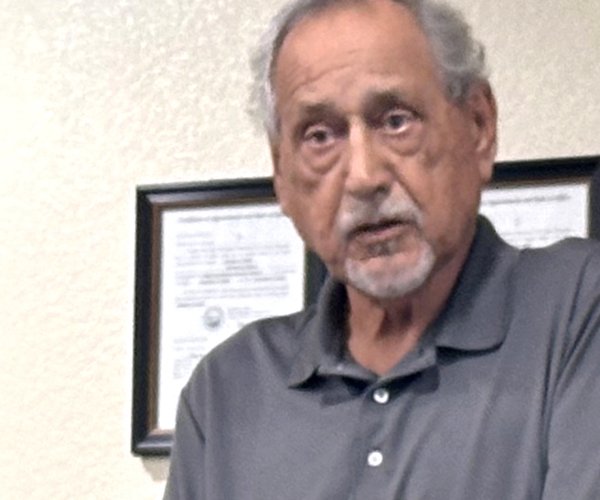WASHINGTON — Hopes for a quick end to the government shutdown faded Friday as Democrats refused to budge in a Senate vote and President Donald Trump readied plans to unleash layoffs and cuts across the federal government.
On the third day of the shutdown, another Senate vote to advance a Republican bill that would reopen the government failed on a 54-44 tally — well short of the 60 needed to end a filibuster and pass the legislation.
Meanwhile, House Speaker Mike Johnson announced that the chamber would not be open for legislative business next week, a move meant to force the Senate to work with the government funding bill that has been passed by the House.
Senators quickly headed for the exits of the Capitol, expecting no more votes over the weekend and showing few signs of any real progress toward ending the congressional standoff. It all pointed to both sides digging in for a prolonged shutdown fight that thrusts federal workers into more uncertainty, threatens to ripple into the broader economy and gives the Trump administration an opportunity to reshape the federal government.
“I do not support a government shutdown,” said Rep. Adam Gray (D-Merced), a freshman congressman whose 13th Congressional District includes a portion of Turlock. “It’s bad for our nation, dangerous for our security, and devastating for our economy and Valley families. The only way forward is bipartisan compromise — not partisan threats or political games.”
Rep. Tom McClintock (R-El Dorado Hills) sent a letter to Secretary of the Interior Doug Burgum, encouraging him to keep the National Parks open and accessible during the lapse in appropriations. Highlights of McClintock’s letter include:
• “In past government shutdowns, the National Park Service ordered all visitors to leave Yosemite National Park, causing lodges and concessionaires to lay off employees and close.”
• “This is especially cruel because, unlike government employees, employees of private businesses that depend on Yosemite do not receive back pay from lost revenue that occurs during the government shutdown.”
• “Additionally, in past shutdowns there were extremely dire reports of irresponsible individuals who were producing uncollected buildups of garbage and even human waste. Many park rangers believe the deterioration of the National Parks that will occur during a shutdown poses a threat to public health and safety. The Antideficiency Act, which generally prohibits agencies from continued operation in the absence of appropriations, makes an exception for “emergencies involving the safety of human life or the protection of property,” and I believe the possibility of these events occurring again presents a clear risk to public safety and to federal property.”
• “I therefore urgently request that you invoke this exception to the Antideficiency Act immediately so that the public can continue to exercise its right to access public lands safely until appropriations can be made.”
Gray said the repercussions of the shutdown can vary from agency to agency, and even depending on the length of the shutdown.
“Each federal agency has its own contingency plan for a shutdown, and the effects can vary depending on how long it lasts,” said Gray. “As time goes on, funds and resources may diminish, which could change how agencies operate and deliver services.
With that in mind, Gray offered Valley residents the following guidance:
•In accordance with guidance from the House of Representatives Committee on House Administration, during a potential shutdown our office operations will continue in Washington and Merced. Call my offices to stay in touch: 202-225-1947 (Washington, DC) and 209-226-6880 (Merced). My staff will be available to continue to help with federal casework, but processing times with federal agencies could be delayed due to the shutdown.
• The Social Security Administration (SSA) will continue to operate and process disbursements. However, the SSA will begin to scale back some services, including issuing Social Security cards and holding appointments for benefit applications. SSA will stop services like benefit verifications and processing overpayments. Customer service wait times will likely increase. To get help with Social Security benefits during a shutdown, call my office in Merced.
• Federal unemployment benefits will continue to be dispersed to the California Employment Development Department (EDD). Unemployed workers will continue to receive benefits, and people who have exhausted their current benefit tier will progress to the next tier.
• Military and federal retirees will continue to receive retirement benefits. Processing new applications or other requested changes will be delayed.
• Post offices and postal workers will continue to operate and deliver mail. Passport and consular services will continue but may be affected by a prolonged shutdown.
• Current Medicare, Medicaid, and disability insurance beneficiaries will continue to receive benefits if a shutdown lasts less than three months.
• In a government shutdown, service members will not receive pay during the shutdown period, but will receive back pay once it ends.
• “Non-excepted” federal employees will be furloughed without pay until the government is funded. “Excepted” federal employees, such as members of law enforcement, active-duty military, TSA, and national security personnel, will continue to work without pay until funding is available.
• During a government shutdown, the federal government will be unable to enter new contracts.
• Head Start providers could be impacted by a government shutdown almost immediately, depending on when they last received federal support and other funds. Most Head Start providers are funded through the end of the year and will likely continue to operate.
• Pell Grants and Federal Direct student loans should continue to be disbursed, as long as federal funding lasts. Department of Education staff needed to continue these functions may be significantly reduced and wait times may be longer than usual.
• The Federal Housing Administration will stop insuring some new mortgages and the Department of Housing and Urban Development will stop processing some new loans. The Department of Agriculture (USDA) will stop new loan and loan guarantee activity. The VA will continue to guarantee home loans. Funding for federal housing assistance programs, such as Housing Choice Vouchers, may be jeopardized.
• In the short term, Supplemental Nutrition Assistance Program (SNAP), Child Nutrition Programs (CNP), and Women, Infants and Children (WIC) benefits will continue to be accessible as long as funds are available. In the event of a prolonged shutdown, funding for these programs could run out as previously appropriated funds expire.
• During a shutdown, grocery stores are unable to renew their Electronic Benefit Transfer (EBT) card licenses, so stores whose licenses expire will not be able to accept SNAP benefits during an extended shutdown.
• Air traffic controllers, TSA officers, and Custom and Border Protection (CBP) agents will remain working without pay. Due to the shutdown, travelers may experience delays at airports due to likely increases in TSA staff absences.
• U.S. Citizenship and Immigration Services (USCIS) operations are typically continued during a shutdown. For help with your immigration case, call Gray’s Merced office.
• Some administrative and technical staff will be deemed essential and continue operations including flood control, municipal and industrial water supplies and hydropower operations.





